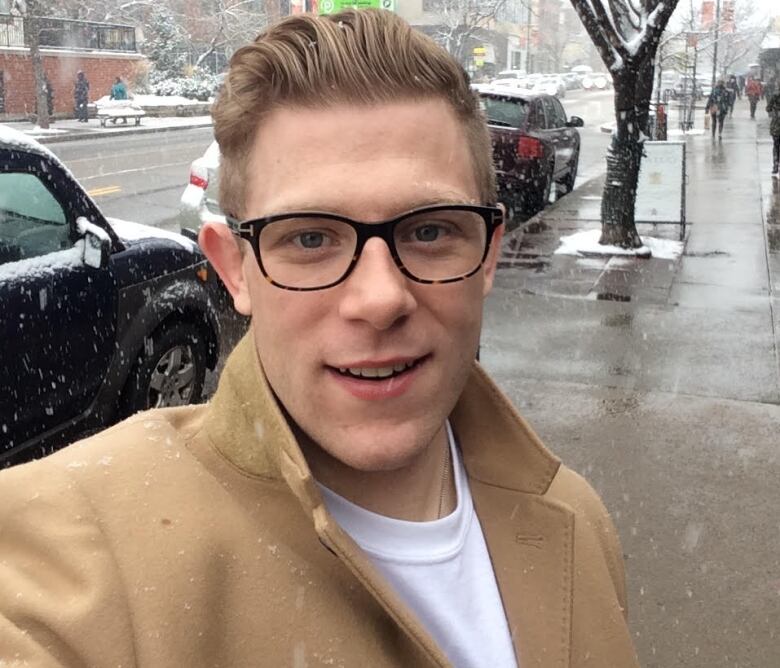Pro hockey referee regularly hears homophobic slurs on ice
Andrea Barone came out publicly in December

Montrealer Andrea Barone, a professional hockey referee working for the ECHL, came out to family and friends a few years ago and came out publicly last December.
The response was overwhelmingly positive.
Still, Barone says he overhears homophobic slurs regularly.
"It's just one of those things that gets labelled as part of the game," he said.
Barone, who is currently based in Nashville, suffered depression as he struggled to accept his sexuality but now he is comfortable with himself and mentors youth who are facing similar struggles. He invites anyone who needs to talk to reach out to him via email.
He came out publicly hoping it would be a stepping stone for someone in the NHL.
"There's no (NHL) player, official, coach that's come out, current or retired, and that's the only sport of the big five sports in North America that no one's come out yet,"
It's a slow process but times are changing, he says.
New campaign 'extremely important'
He says the new Quebec campaign against homophobic slurs is "extremely important and goes to show it's actually a problem because it's not a conversation that happens regularly amongst people,"

They include strong language and feature people regretting the fact that they missed an opportunity to speak up against bullying and homophobic language.
Barone says there's always a negative connotation when you're called one of those names on the ice.
"It just pushes people further and further in the closet as it pushed me further and further into the closet for a very long time," he said.
Life lessons
Recently, after warning the same player about making homophobic slurs several times, Barone penalized him for calling another player "an eff-ing homo."
It was a 10-minute penalty for unsportsmanlike conduct and the coach wanted an explanation.
Barone said he explained the reason and the coach at first replied, "well he didn't say it to you."
That shows how people often think it's not really a big deal, Barone said.
Barone later told the coach, "if that language is okay on the ice, then I don't belong here," and that's when the coach started to understand.
The coach apologized and agreed that kind of language shouldn't be used at all any more, Barone said.
"(He) didn't realize what he was saying and he's actually a great guy," Barone said, adding that many people do not realize the impact their words have on others.
Barone says the awareness campaign in Quebec is a big step in the right direction.
"(Using those slurs) is always hurting somebody, whether it's directly or indirectly, you never know who hears it and you never know who's struggling," he said.

